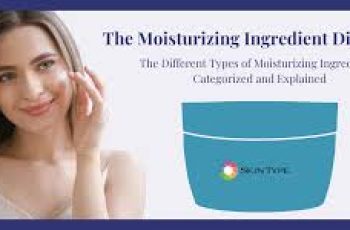
Vaccinium Myrtillus (Bilberry Seed Oil) Extract in Skin Care
Vaccinium myrtillus, commonly known as bilberry, European blueberry, or whortleberry, is a shrub native to northern Europe and North America. The bilberry fruit and its seed oil have garnered attention in the skincare industry for their impressive range of benefits. Bilberry Seed Oil, extracted from the seeds of the bilberry plant, contains potent compounds that offer anti-aging, soothing, and skin-lightening properties. This makes it a highly sought-after ingredient in the formulation of skincare products, particularly in those targeting dark spots, wrinkles, and aging skin.
Bilberry Seed Oil is now a key ingredient in many anti-aging and skin care treatments, helping to address various skin concerns ranging from acne to hyperpigmentation. Let’s explore how bilberry seed oil can benefit your skin and why it’s becoming a popular choice in the beauty world.
Benefits of Bilberry Seed Oil for Skin
Bilberry Seed Oil is a versatile and highly effective skincare ingredient. Its benefits are due to its rich composition of natural compounds, including unsaturated fatty acids, anthocyanins, and phenolic compounds. The following are the main benefits of bilberry seed oil for the skin:
Anti-inflammatory Properties
Bilberry Seed Oil has natural anti-inflammatory effects, making it beneficial for calming irritated skin. It can reduce inflammation associated with conditions like eczema, psoriasis, and rosacea, providing soothing relief for sensitive skin. Additionally, its anti-inflammatory action helps prevent irritation caused by environmental factors such as pollution and sun exposure.
Antioxidant Protection
Bilberry oil is rich in antioxidants, which play a crucial role in protecting the skin from oxidative stress. The antioxidants found in bilberry oil, including anthocyanins and other polyphenolic compounds, help neutralize free radicals that can cause premature aging, fine lines, and wrinkles. This antioxidant protection helps maintain the skin’s youthful appearance and supports overall skin health.
Moisturizing Effects
Bilberry Seed Oil is a powerful moisturizer, as it contains essential fatty acids like linoleic acid and α-linolenic acid. These unsaturated fatty acids help lock in moisture and improve the skin’s ability to retain hydration. As a result, bilberry oil is ideal for dry and dehydrated skin, providing long-lasting moisture without clogging pores.
Skin Lightening and Brightening
Bilberry Seed Oil has skin-lightening properties that can help reduce the appearance of dark spots, hyperpigmentation, and melasma. The oil inhibits the production of melanin, the pigment responsible for skin discoloration, by blocking the enzyme tyrosinase. Regular use of bilberry seed oil can promote a more even skin tone and help fade dark spots caused by UV exposure or acne scars.
Protection Against Sun Damage
Bilberry extract contains anthocyanins, which have been shown to provide significant protection against sun damage. These compounds help maintain the skin’s natural antioxidant glutathione levels after sun exposure, preventing damage caused by UVA and UVB rays. Bilberry oil can help reduce free radical formation and minimize the harmful effects of sun exposure, such as premature aging and skin discoloration.
Antimicrobial Effects
Bilberry oil exhibits antimicrobial properties, making it an excellent choice for treating acne-prone skin. It helps combat the bacteria and fungi responsible for acne breakouts and other skin infections, supporting clear and healthy skin.
How Bilberry Oil Extract Works on the Skin
The effectiveness of bilberry oil in skincare is largely attributed to its active chemical components:
Unsaturated Fatty Acids (Linoleic Acid and α-Linolenic Acid): These fatty acids are known for their anti-inflammatory and moisturizing properties. They help soothe the skin, reduce redness, and prevent the loss of moisture. Additionally, they can help lighten hyperpigmentation by inhibiting the enzyme tyrosinase, which plays a key role in melanin production.
Anthocyanins: These powerful antioxidants give bilberry its blue/black color and provide anti-inflammatory, antimicrobial, and antioxidant effects. Anthocyanins protect the skin from oxidative stress, reducing inflammation and preventing age-related damage caused by free radicals. Although they have relatively low bioavailability, they act as intracellular antioxidants that contribute to overall skin health and resilience.
Phenolic Compounds: Bilberry contains a variety of phenolic compounds such as chlorogenic acid, protocatechuic acid, resveratrol, isoquercetin, quercetin, and hyperoside. These compounds are potent antioxidants that protect the skin from free radical damage, supporting the skin’s natural healing processes and maintaining its youthful appearance.
How Bilberry Seed Oil Benefits Specific Skin Concerns
Acne
Bilberry Seed Oil is noncomedogenic, meaning it won’t clog pores. Although it can’t treat acne on its own, it can be beneficial when used alongside other acne treatments like retinoids and benzoyl peroxide. Its anti-inflammatory and antimicrobial properties help reduce redness, swelling, and acne breakouts.
Dark Spots and Hyperpigmentation
The linoleic acid and α-linolenic acid in bilberry oil help reduce the production of melanin, the pigment responsible for dark spots and hyperpigmentation. By inhibiting the enzyme tyrosinase, bilberry oil can lighten areas of skin affected by UV damage, acne scars, and age spots, promoting a more even skin tone.
Sensitive or Allergic Skin
Bilberry Seed Oil is particularly useful for soothing sensitive skin or skin that is prone to allergic reactions. It has been shown to alleviate symptoms of allergic contact dermatitis, such as itching and redness, and can reduce skin irritation caused by environmental factors.
Sun Protection
Bilberry oil helps the skin maintain its antioxidant levels, including glutathione, after sun exposure. This reduces the oxidative stress caused by UV rays and protects the skin from the damaging effects of sun exposure. Bilberry’s anthocyanins act as a natural form of sun protection, helping to prevent the formation of free radicals and promoting skin recovery after sun damage.
Safety of Bilberry Seed Oil
Bilberry Seed Oil is generally considered safe for use in skincare products. The Environmental Working Group (EWG) has rated bilberry oil as very safe, giving it a score of 1 on their risk scale, which indicates no known danger. The Cosmetic Ingredient Review (CIR) has also reported that plant-derived fatty acid oils, such as bilberry oil, are safe for topical use.
As with any new skincare ingredient, it is recommended to perform a patch test before using bilberry seed oil extensively, especially for individuals with sensitive skin or allergies.
Conclusion
Vaccinium Myrtillus (Bilberry Seed Oil) Extract is a powerhouse ingredient in skincare that offers a multitude of benefits. Its anti-inflammatory, antioxidant, moisturizing, and skin-lightening properties make it an excellent choice for addressing a wide range of skin concerns, including acne, dark spots, hyperpigmentation, sun damage, and sensitive skin. The rich composition of unsaturated fatty acids, anthocyanins, and phenolic compounds work synergistically to protect, repair, and rejuvenate the skin.
Bilberry Seed Oil is safe for most skin types and is a great addition to a natural skincare routine. Whether you are looking to treat acne, fade dark spots, or protect your skin from environmental stressors, bilberry extract could be the ideal solution for you. If you’re unsure whether bilberry oil is right for your skin, consider taking a skincare routine quiz to determine the best products for your unique needs.


